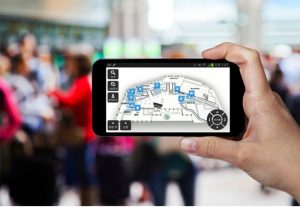Whether intentional or unintentional, the recent increase in incidents related to satellite navigation systems fully illustrates the threat to these networks. Today, for what is indispensable to our modern army and our daily lives, we must expect to face the situation where satellite positioning systems are unavailable or damaged, and take the necessary measures to identify and respond to these threats.
In June, the Justice Department released a report that provided solutions to prevent criminal activities in prisons: it successfully tested a jammer designed to stop cell phone signals from smuggled cell phones in Maryland prisons. The news spread quickly around the world. For Brian Stirling, director of the South Carolina Department of Corrections, this news confirms his belief that to prevent the proliferation of mobile phones flowing into prisons, jamming technology is the best, cheapest, and most effective method.

The portable jammer can be a small, low-cost box that can send continuous sound to the antenna, effectively preventing the phone from making or receiving calls. Jammers are usually cheap-Google searches show many options between $119-650-and can be easily ordered online. But critics warn that traffic congestion may have dire consequences. They believe that there are many shameful reasons-money, control of the new system and crime reasons-to support the legalization of correction system interference.
Ben Levitan, a North Carolina wireless communications expert who recommends the use of calibration equipment, said: “Interferer jamming technology is a very difficult task, and once this door is opened, we will not be able to return.” I have been in this business for 30 years. If someone is committed to new technologies, they may know someone who sells equipment or owns parts.” Levitan and other technical experts interviewed for this article pointed out that there are other effective solutions. Can control the proliferation of mobile phones in prisons, such as: B. tracking, locating and identifying radio signal detection systems, and telephone companies through a predetermined whitelist to filter calls to manage access systems.
The bigger problem is the high cost of calls from the prison and the need for prisoners to contact relatives. Prisoners have all kinds of ideas, and they can put their mobile phones in prison. Sterling said that in South Carolina, couriers walked through the forest and threw smuggled backpacks on the prison fence. The drone tracked the prison yard and waited until the guards left the area before throwing the phone into the prisoner’s hands.